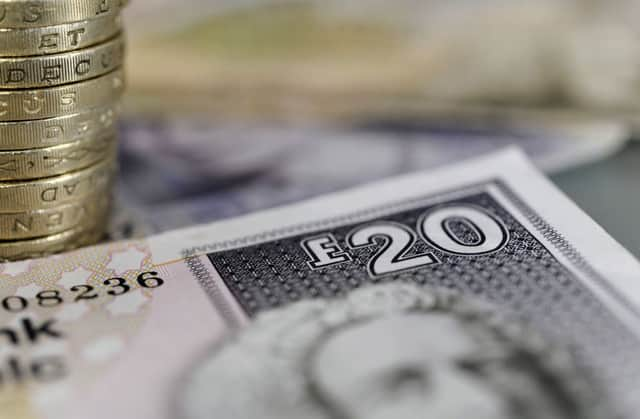Government in further Lloyds stake selldown


It means the government has recouped £15 billion of the £20.5bn state lifeline Lloyds received after it took over flagging rival HBOS in the worst days of the financial crisis in 2008.
The Treasury has reduced its stake from 24.9 per cent when it announced a trading plan in December to sell shares gradually into the market. It now stands at 11.98 per cent.
Advertisement
Hide AdAdvertisement
Hide AdChancellor George Osborne hailed the latest sale yesterday as “fantastic news”.
He added: “I am determined to build on this success, and to continue to return Lloyds to the private sector and reduce our national debt.”
A Lloyds spokesman said the latest announcement “shows the further progress made in returning Lloyds Banking Group to full private ownership and enabling the taxpayer to get their money back.
“This reflects the hard work undertaken over the last four years to transform the group into a simple, low risk and customer-focused bank that is committed to helping Britain prosper”.
The total paid for the latest 1 per cent chunk was not disclosed, but at market prices it is worth about £500 million. The current trading plan will end no later than 31 December, 2015.
Lloyds is now strongly profitable again after years of losses brought on by the acquisition of HBOS, which included Bank of Scotland and Halifax.
The group has said since the rescue that after studying the books it would not have sanctioned £65bn of HBOS’s £255bn of retail lending or £80bn of its £116bn corporate loan book.
Lloyds resumed dividend payments earlier this year, and has said it will consider using spare capital to distribute additional special dividends.
Advertisement
Hide AdAdvertisement
Hide AdThis is expected to make the stock more attractive for a “Tell Sid”-style sell-off to ordinary retail investors that is being planned for next year.
However, the share price has fallen sharply in recent months. After reaching nearly 90p in June, the shares closed last night at 75.51p, not far above the 74p price the government paid for them.
They dropped to 71.6p early in September as financial markets were hit by fears over the global economy in the wake of the Chinese slowdown.
Lloyds chief executive Antonio Horta-Osorio, who has overseen the recovery of the bank’s fortunes, said in July that it was on track to achieve full re-privatisation within a year.